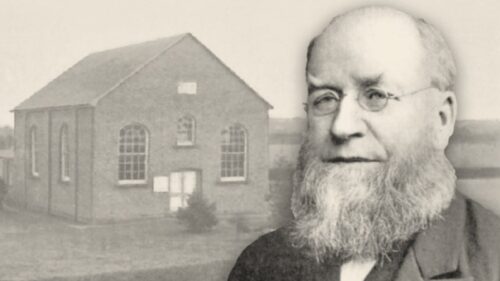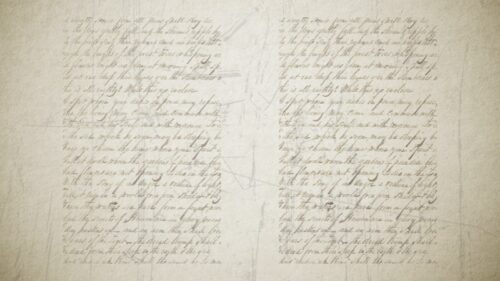-
115 Censure
CENSURE The act of judging and blaming others for their faults. Faithfulness in reproving another differs from censoriousness: the former arises from love to truth, and respect for the person; the latter is a disposition that loves to find fault. However just censure may be where there is blame, yet a censorious spirit or rash judging must be avoided. It is usurping the authority and judgment of God. It is unjust, uncharitable, mischievous, productive of unhappiness to ourselves, and often the cause of disorder and confusion in society.
-
114 Disputation
DISPUTATION Religious, is the agitation of any religious question, in order to obtain clear and adequate ideas of it. The propriety of religious disputation or controversial divinity has been a matter of doubt with many. Some artfully decry it, in order to destroy free inquiry. Some hate it, because they do not like to be contradicted. Others declaim against it, to save themselves the disgrace of exposing their ignorance, or the labour of examining and defending their own theses. There are others who avoid it, not because they are convinced of the impropriety of the thing itself, but because of the evil temper with which it is generally conducted. The propriety of it, however, will appear, if we consider that every article of religion is…
-
113 Exhortation
EXHORTATION The act of laying such motives before a person as may excite him to the performance of any duty. It differs only from suasion in that the latter principally endeavours to convince the understanding, and the former to work of the affections. It is considered as a great branch of preaching, though not confined to that, as a man may exhort, though he do not preach; though a man can hardly be said to preach if he do not exhort. It seems, however, that there are some, who, believing the inability of man to do any thing good, cannot reconcile the idea of exhorting men to duty, being, as they suppose, a contradiction to address men who have no power to act of themselves.…
-
The Articles Of Faith Of A Strict And Particular Baptist Church
Articles Of The Faith And Order Of A Primitive Or Strict And Particular Baptist Church Of The Lord Jesus Christ, Based On The Declaration Of Faith And Practice Of John Gill, D. D., 1720 Anne Askew, Martyred 1846“I am not she that list My anchor to let fall, For every fleeting mist, My hope’s substantial."Gorge Murrell, St. Neots“I may lose all my friends. Well, be it so, if it is God’s will; but I am determined to go to hevane alone, rather than walk in fellowship with any who repudiate His truth, and decline to obey His commandments.”------------------------------- Introduction: Having been enabled, through Divine grace, to give ourselves to the Lord, and likewise to one another, according to the will of God[1], we count it…
-
112 Thought
THOUGHT An image of any thing formed in the mind; sentiment, reflection, opinion, design. As the thoughts are the prime movers of the conduct; as in the sight of the Divine Being, they bear the character of good or evil; and as they are therefore cognizable at his tribunal; the moral regulation of them is of the greatest importance. It is of consequence to inquire what thoughts ought to be rejected and what to be indulged. Those of an evil nature, which ought to be banished, are, 1. Fretful and discontented thoughts.--2. Anxious and apprehensive thoughts.--3. Angry and wrathful thoughts.--4. Malignant and revengeful thoughts.--5. Such as are foolish, trifling, and unreasonable.--6. Wild and extravagant, vain and fantastical.--7. Romantic and chimerical.--8. Impure and lascivious.--9. Gloomy and…
-
111 Reason
REASON A faculty or power of the mind, whereby it draws just conclusions from the true and clear principles. Many attempts have been made to prove reason inimical to revelation; but nothing can be more evident than that it is of considerable use in knowing, distinguishing, proving, and defending the mysteries of revelation; although it must not be considered as a perfect standard by which all the mysteries of religion must be measured before they are received by faith. "In things," says Dr. Watts, "which are plainly and expressly asserted in Scripture, and that in a sense which contradicts not other parts of Scripture, or natural light, our reason must submit, and believe the thing, though it cannot find the modus or manner of its…






